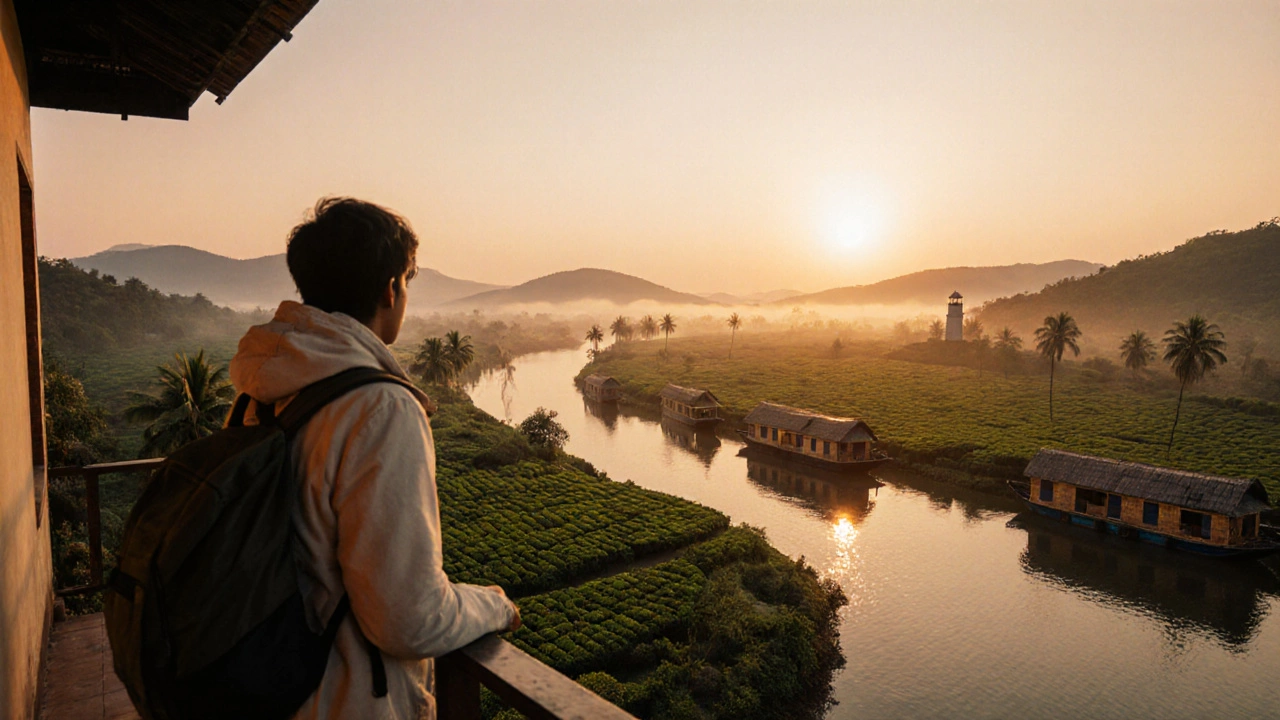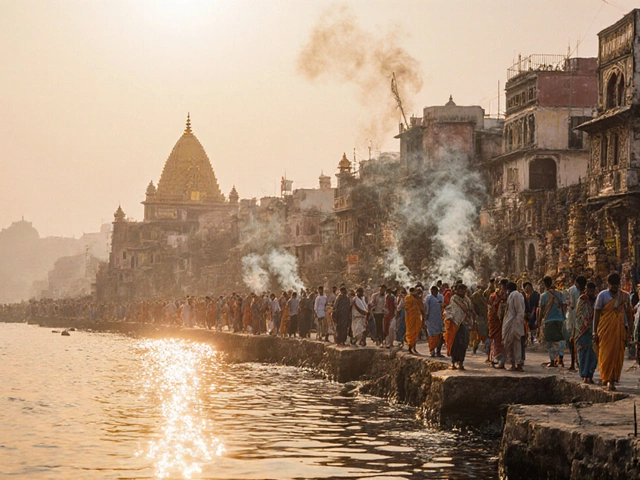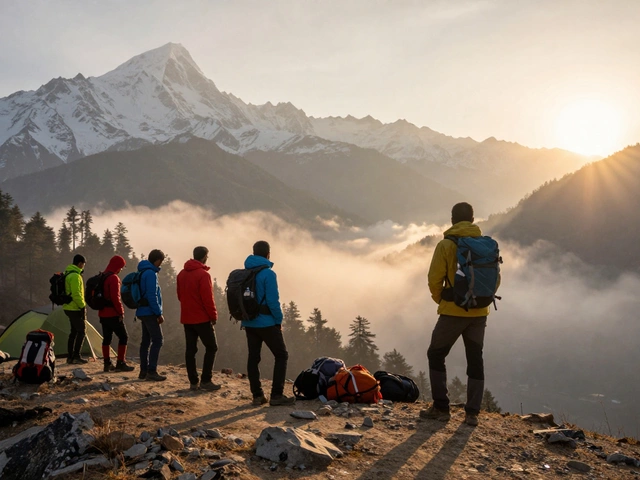Kerala Travel Safety Assessment Tool
Personal Safety Assessment
Your Safety Assessment
Recommended Precautions
Carry a rapid antigen test kit and maintain basic hygiene
Use licensed taxi services or official ride-hailing apps
Check KSDMA app daily for flood warnings
When planning a trip, Kerala is a southern Indian state known for its backwaters, tea‑plantation hills and vibrant culture. Travelers often wonder: Kerala safe to visit in 2025? This guide pulls together the latest health data, government advisories, weather patterns and on‑the‑ground safety tips so you can decide with confidence.
Quick Takeaway
- Government travel advisories from Australia, USA and UK list Kerala as a low‑to‑moderate risk for crime and health.
- COVID‑19 cases are below 5 per 100,000; most hotels require proof of vaccination or a negative test.
- Monsoon season (June‑September) still brings localized flooding; November‑February is the safest window for outdoor activities.
- Common scams involve over‑charging for taxis and fake ‘guide’ offers - always use licensed services.
- Emergency number 112 connects you to police, fire and medical services instantly.
Current Travel Advisories
The Australian Department of Foreign Affairs and Trade (DFAT) rates Kerala as Level 1 - Exercise normal safety precautions. The U.S. State Department’s 2025 advisory mirrors this, noting low crime but reminding travelers about seasonal weather. The UK Foreign, Commonwealth & Development Office (FCDO) adds a brief note on dengue risk during the monsoon.
These advisories are updated monthly, so before you book, check the latest bulletin on the respective government websites.
Health & Pandemic Situation
Since early 2023, India’s Ministry of Health and Family Welfare has shifted COVID‑19 management to endemic surveillance. As of October 2025, Kerala reports an average of 4.3 new cases per 100,000 people, far below the national average of 12.5. The state’s vaccination coverage sits at 92% for the primary series and 78% for the booster dose.
Key health pointers:
- Carry a digital copy of your vaccination certificate; many upscale hotels and resorts request it at check‑in.
- Bring a rapid antigen test kit for peace of mind, especially if you plan to travel to remote hill stations where medical facilities are sparse.
- Stay hydrated and eat freshly cooked food. Tap water is not potable in most areas; bottled water is cheap and widely available.
Beyond COVID‑19, dengue and chikungunya spike between June and September. Wear long sleeves, use DEET‑based repellents and sleep under mosquito nets if you’re staying in budget lodges.
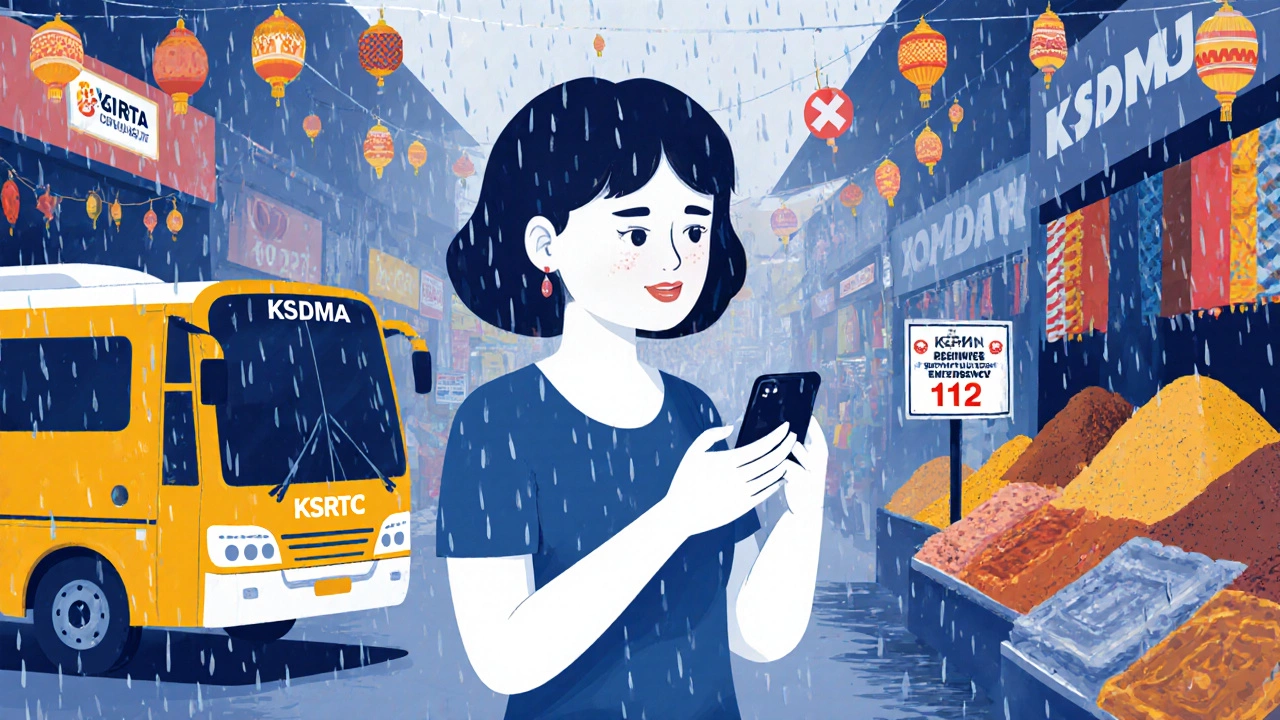
Weather & Natural Hazards
Kerala’s tropical climate means two distinct periods:
- Monsoon (June‑September): Heavy rain can trigger flash floods in low‑lying coastal towns such as Alappuzha and Kozhikode. Landslides are a concern in the Western Ghats, especially around Munnar and Wayanad.
- Dry/Cool season (November‑February): Comfortable temperatures (22‑30°C) and clear skies - the ideal window for houseboat cruises, wildlife safaris and trekking.
The Kerala State Disaster Management Authority (KSDMA) publishes real‑time alerts on its website and via an official mobile app. Download the app before you land; it sends push notifications for flood warnings, road closures and cyclone updates.
Crime and Common Tourist Scams
According to the Kerala Police, violent crime against tourists is rare - less than 0.2% of total reported incidents. However, petty crime such as pickpocketing and bag‑snatching can occur in crowded markets like the Spice Market in Kochi.
Typical scams include:
- Unlicensed taxi drivers quoting inflated fares. Always request a ride through the Kerala State Road Transport Corporation (KSRTC) app or reputable ride‑hailing services.
- “Guides” offering free tours but demanding a hefty tip later. Verify credentials; official guides carry an ID issued by the Kerala Tourism Development Corporation (KTDC).
- Fake currency exchange booths near tourist hotspots. Use bank ATMs or authorized exchange counters.
Keeping your belongings close, using a money belt and staying aware of your surroundings cuts down risk dramatically.
Local Services and Emergency Contacts
Should anything go wrong, here are the numbers you’ll need:
| Service | Number | Notes |
|---|---|---|
| Police, Fire, Ambulance | 112 | Works nationwide; English‑speaking operators available. |
| Tourist Helpline (Kerala Tourism) | +91‑471‑233‑7777 | 24‑hour assistance for foreigners. |
| Medical Assistance (Government Hospitals) | +91‑471‑237‑1000 | Major hospitals in Thiruvananthapuram, Kochi. |
| Travel Insurance Claim Hotline | Varies by provider | Keep your policy number handy. |
Most urban hospitals have English‑speaking doctors. In rural areas, carry a basic first‑aid kit and a list of nearby clinics - you can find them in the “Health” section of the KSDMA app.
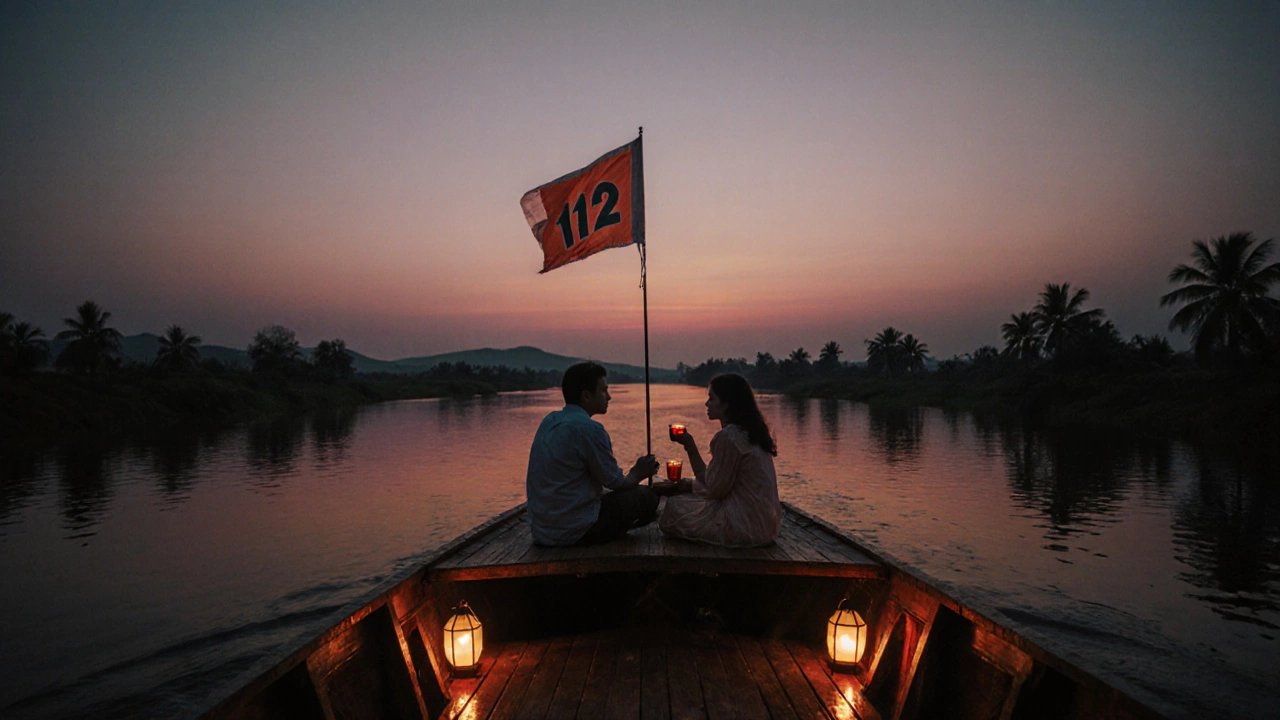
Practical Safety Checklist for Travelers
- Documentation: Scan your passport, visa, vaccination proof and insurance policy; store copies on a secure cloud service.
- Local SIM: Purchase a prepaid SIM (e.g., Jio or Airtel) for reliable internet and access to emergency apps.
- Accommodation vetting: Book through reputable platforms; look for properties that list compliance with COVID‑19 protocols.
- Transport: Use KSRTC’s official app or verified ride‑hailing services; avoid accepting rides from strangers at airports.
- Health prep: Pack a small kit (hand sanitizer, repellent, basic pain relievers, oral rehydration salts). Register with your embassy’s online traveler registration.
- Weather awareness: Check the KSDMA app each morning; postpone outdoor plans if a flood warning is active.
- Money safety: Keep most cash in a hidden pouch; use credit cards for larger purchases and withdraw local rupees as needed.
- Local customs: Dress modestly when visiting temples; remove shoes where required. Respect wildlife - never feed animals in Periyar or the silent valley reserves.
Following this list reduces surprises and lets you focus on Kerala’s unforgettable experiences.
Comparison Table: Safety Index of Popular Indian States (2025)
| State | Crime Risk | Health Risk (incl. COVID) | Weather/Natural Hazard Risk | Overall Score |
|---|---|---|---|---|
| Kerala | 2.1 | 1.8 | 3.0 (monsoon season) | 2.3 |
| Goa | 3.5 | 2.5 | 2.8 (cyclone threat) | 2.9 |
| Rajasthan | 2.8 | 2.0 | 2.2 (heat wave) | 2.3 |
| Himachal Pradesh | 1.9 | 1.9 | 4.2 (landslide & snow) | 2.7 |
| Uttarakhand | 2.0 | 2.1 | 4.5 (earthquake zone) | 2.9 |
Kerala’s overall score is among the lowest, indicating a relatively safe environment for tourists when standard precautions are observed.
Frequently Asked Questions
Is it safe to travel to Kerala during the monsoon?
Can I still enjoy the backwaters in September?
Yes, but choose houseboats that operate from higher‑ground docks and confirm that the operator monitors weather alerts. Many backwater tours shift to the northernmost stretches where flood impact is minimal.
Do I need a COVID‑19 test to enter Kerala?
As of October2025, a negative PCR or rapid antigen test taken within 48hours is no longer mandatory for fully vaccinated travelers. However, a few boutique resorts still request proof, so carry your certificate just in case.
What is the best way to get around safely?
In cities, the KSRTC app or reputable ride‑hailing services (Uber, Ola) are the safest options. For intercity travel, book night buses or trains through the official Indian Railways portal to avoid unofficial operators.
Are there any areas I should avoid?
Remote border regions near the Kerala‑Tamil Nadu hills sometimes experience civil unrest unrelated to tourism. Stick to well‑traveled routes and check local news via the KSDMA app before venturing into isolated villages.
What should I do if I lose my passport?
Contact the Australian High Commission in New Delhi (or your home country’s embassy) immediately. They can issue an Emergency Travel Document, which you can use to fly home. Keep a digital copy of your passport for faster verification.
With the right preparation, Kerala remains one of India’s safest and most rewarding destinations. Keep an eye on official advisories, respect local customs, and you’ll enjoy everything from the serene backwaters to the mist‑covered tea estates without worry.
